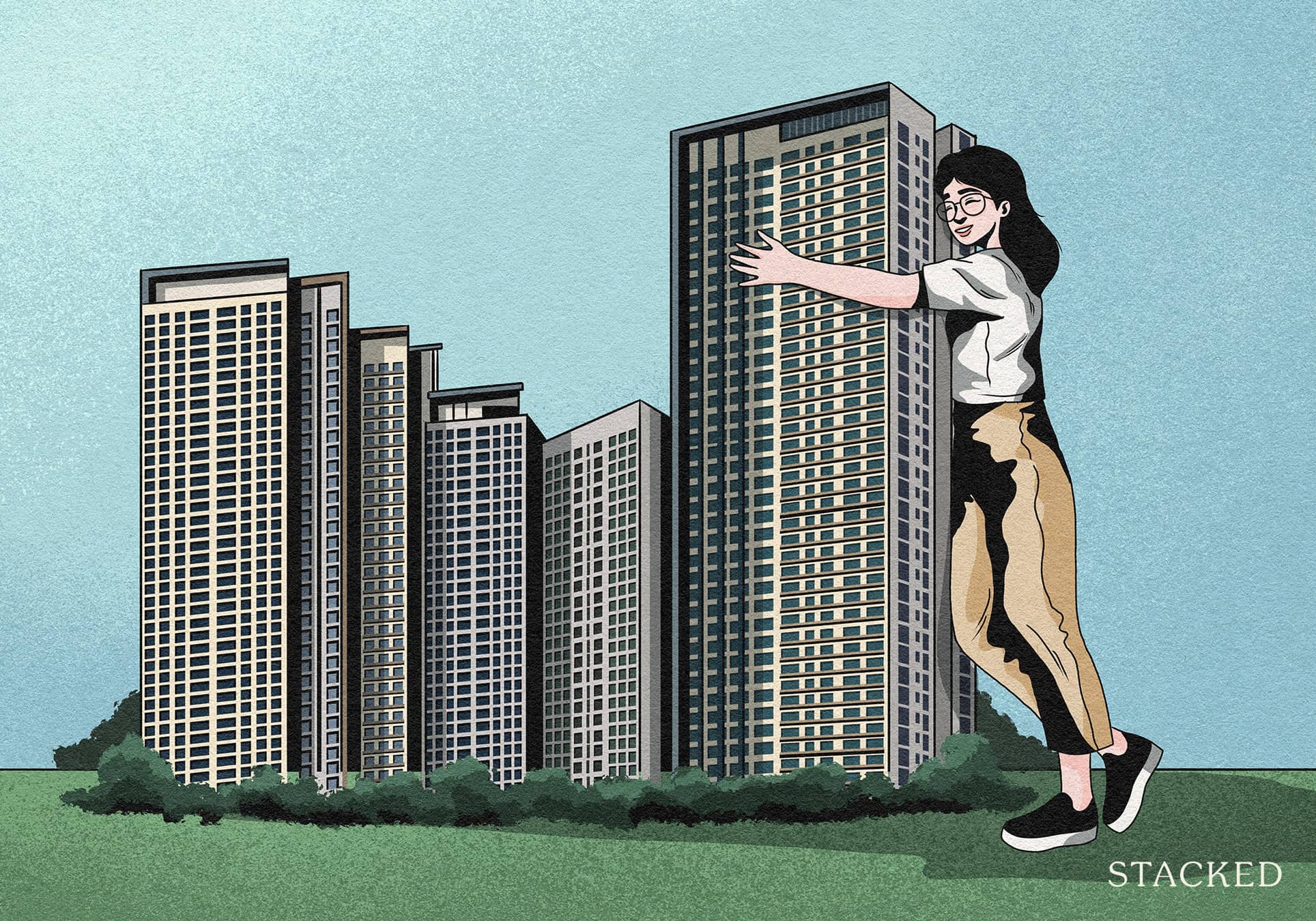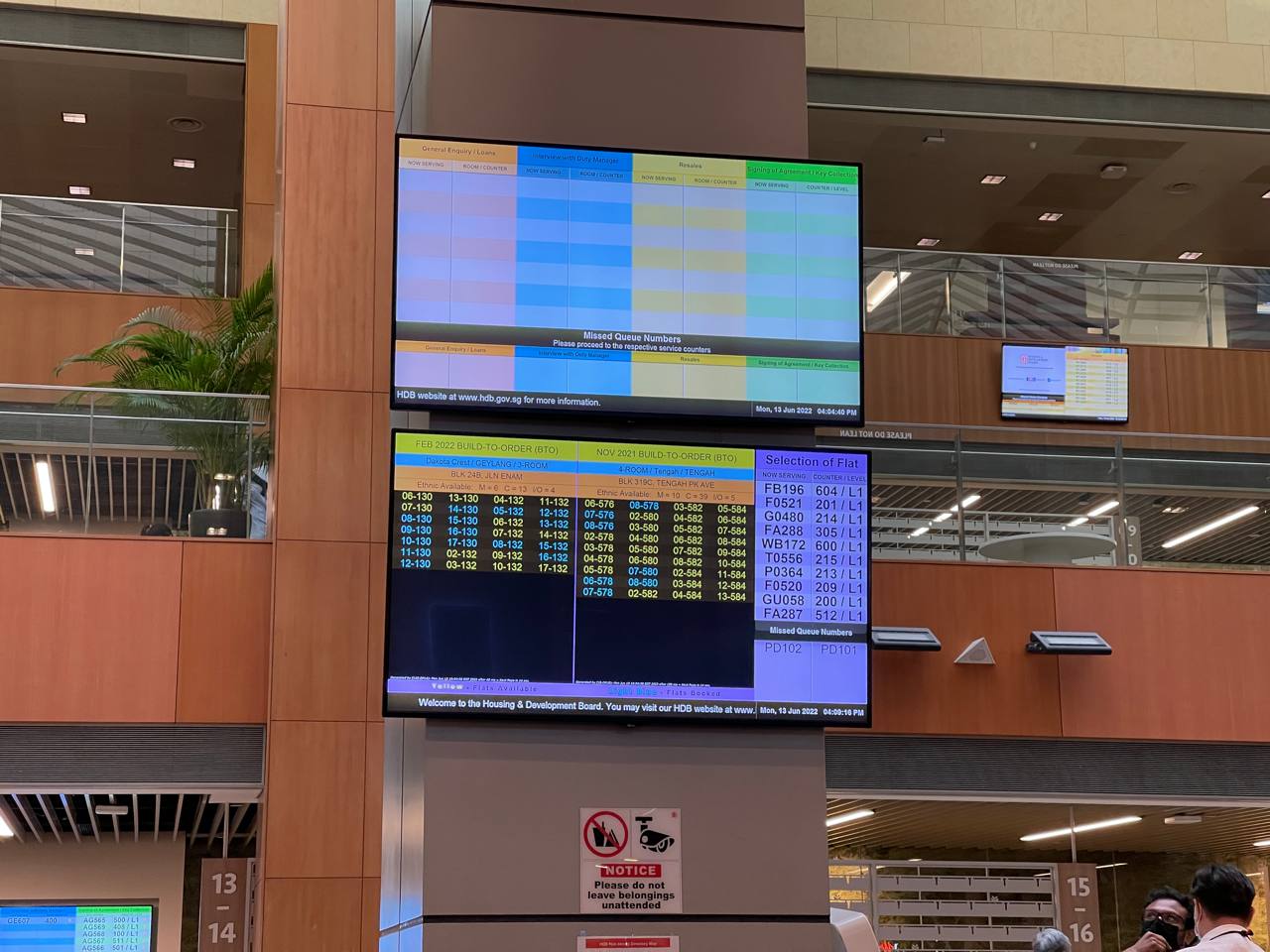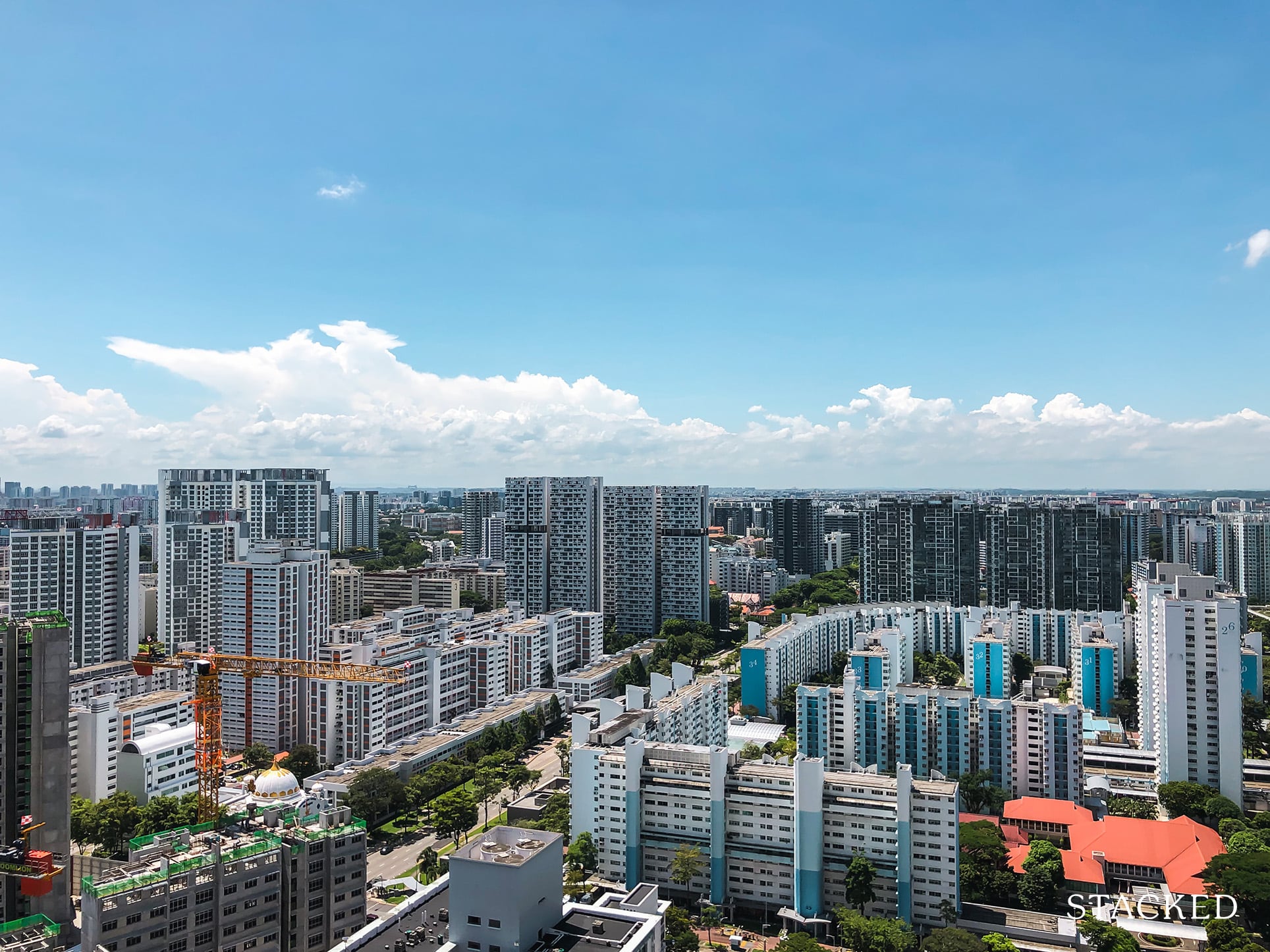Slimmer Chance Of Getting A BTO If You Cancel The First Time: Here’s What Singaporeans Think
March 7, 2023

It may be time to stop being choosy or gaming the system, as HDB clamps down with a new “choose it or lose it” policy. Those who fail to show up at BTO selection won’t just lose their chance at the current development – they’ll find themselves joining the second-timers all the way at the back of the queue. But is it fair, and what are the implications? We asked some people on the ground:
Starting from the August BTO launch, skipping your BTO selection means you apply as a second-timer next time around
Such applicants will be treated as second-timers for a period of one year. This is more stringent than the previous rule, which reduces you to second-timer status only if you skip the selection process twice.
The rule is a response to the growing “non-selection count” (i.e., people who ballot for a flat but don’t turn up to actually book one when they win). The Straits Times reports that some 40 per cent of successful applicants each year back out when it’s time to book the actual flat.
This is especially problematic in 2023 when we’re dealing with a housing shortage, and mounting complaints about over-subscribed flats. Those who ballot successfully, but don’t then choose a flat, are crowding out some flat applicants who may urgently need the unit.
What does being treated as a second-timer mean?
It means you have a lower chance of successfully balloting for a flat. For starters, a greater number of flats are set aside for first-timers than for second-timers:
| Flat Type | First-timer | Second-timer | |||||
| Families (PPS) | Families (MCPS)* | Other families | Singles | Families (ASSIST) | Families (MCPS)* | Other families | |
| 2-room Flexi | 5% | 5% | 10% | 65% | 5% | 5% | 5% |
| 3-room | 30% | 30% | 25% | NA | 5% | 5% | 5% |
| 4- and 5-room | 30% | 30% | 35% | NA | NA | 3% | 2% |
| Flat Type | First-timer | Second-timer | |||
| Families (PPS) | Families (MCPS)* | Other families | Families (MCPS)* | Other families | |
| 4-room and bigger flats | 30% | 30% | 35% | 3% | 2% |
Besides this, first-timers have two chances to succeed during balloting, whereas second-timers have only a single chance.
From word on the ground, not everyone who backs out at the selection step is being frivolous
There are some people who are just trying their luck. For example, someone who ballots for a highly desirable BTO launch just to see if they could get one; they’re only semi-serious about it, and figure they’ll “think about it if they win.”
When they do get a flat and they’re not prepared, they skip the selection process and don’t turn up.

Another group of buyers may just be pickier. They may back out because they don’t like the available options – perhaps because the available units are on a lower floor, or they receive advice that there are better locations to wait for.
But being “picky” doesn’t mean someone isn’t a genuine home buyer, or isn’t in urgent need
One realtor, who declined to be named, said it may be unfair to accuse someone who backs out as being picky:
“If you are going to stay there and pay the loan for 20 over years, your children have to go to school around there, you see the same view year-in and year-out, you also will want to ensure it’s the best home you can get.
Buying your property is one of the major commitments in your life, equal to choosing which university you will study at, or how you build your retirement. We wouldn’t call someone fussy for being picky about those things right? So it’s not really fair to say it of home buyers.”
That aside, there are several genuine reasons why some buyers back out as well. These include:
- A change in relationship status, such as couples who break up or divorce before the selection process
- Loss of income, due to retrenchment or for medical reasons
- Other changes in the family, such as a parent who once stayed nearby being forced to relocate
- In some cases, loan eligibility is affected, and there are financing issues involved (e.g., a small handful of buyers may suddenly fail to qualify for bank loans, due to rising interest rate floors, or sudden accumulation of necessary debt)
HDB has, however, said that they will exercise flexibility; and deal with these on a case-by-case basis.
More from Stacked
Is It Really Mad To Pay $1 Million For A Woodlands HDB? We Find Out If There Are Better Condo Alternatives
I can’t help but notice that Singapore’s resale HDB prices have been performing inversely to the stock market (for the…
Alternatives like fines are unlikely to work
We’ve heard several suggestions about how fines or forfeited deposits should be used instead. For example, requiring applicants to put down a non-refundable fee, which they would surrender if they don’t show up during the selection process.
However, industry professionals we spoke to said this is unlikely to work. One realtor, who works primarily in the HDB market, says:
“You would need an unreasonably large deposit or fine to prevent people from backing out.
You have to consider that not everyone is thinking to sell at MOP – if it’s a place where they intend to spend the rest of their life, or even a long time like 20 to 30 years – they will want to ensure they get the best flat. If they have to forfeit even thousands of dollars to do it, they probably will.”
Some readers also added that it’s a heavy financial burden on lower-income families, to come up with upfront cash.
(Deducting the amount from their CPF isn’t a good option either, as this would also lower the deterrence value, being the cash is not paid out of pocket).
The practical consequences and opinions
We’ve encountered some divergence of opinions, but most readers agree this is a good policy if exercised with flexibility. However, some readers question if this will lead back to the old “windfall” argument.
As one reader says, being “compelled to accept” what’s available is unfair; some people will get better units than others (e.g., higher floor units), while others are forced to accept worse units or “risk not having a flat at all”.
The reader likened this to prior arguments over some buyers getting high-value mature-area flats, whilst others are stuck with less developed options.

We do feel there’s some potential backlash that could arise against HDB here – the issue being that some flat buyers may interpret the more stringent rules as an ultimatum.
To wit: if you feel you were “forced” to choose between a perceived “bad” flat or potentially no flat at all, you may feel some resentment later; especially if your flat really does end up fetching lower resale value.
However, some readers had equally strong opinions that support the new measures; with one reader asserting that:
“Priority is to provide decent housing, not to provide luxury dream houses to please everybody. How to make sure everyone is happy with their floor, their view, and their location…next time double storey or corner unit is also obliged to provide? If you want to be fussy then you can wait longer, nothing unfair.”
One interesting argument that was raised by some market watchers, however, is that if people still insist on backing out, there could be some impact on the resale flat market.
One analyst, who declined to be named, said that those who backed out of the selection process and were then unable to secure a BTO flat, could turn to resale options. This could have the unintended effect of maintaining high resale flat prices, for a longer period.
However, realtors generally disagreed. Most felt that – given the high prices in the resale market – those who currently opt for BTO flats went balloting precisely because they’re priced out of resale.
As such, anyone who backs out will probably just wait out their one-year “penalty” as second-timers, before trying to ballot again (unless, of course, resale flat prices fall significantly during that time).
We’d be interested to know how you feel about the new rules tweak. Comment below and let us know; especially if you’ve felt the need to back out at flat selection before. In the meantime, follow us on Stacked for updates as the situation develops.
At Stacked, we like to look beyond the headlines and surface-level numbers, and focus on how things play out in the real world.
If you’d like to discuss how this applies to your own circumstances, you can reach out for a one-to-one consultation here.
And if you simply have a question or want to share a thought, feel free to write to us at stories@stackedhomes.com — we read every message.
Frequently asked questions
What happens if I don't show up for my BTO flat selection in Singapore?
How does being a second-timer affect my chances of getting a flat in Singapore?
Why are the new rules for BTO flat selection being implemented in Singapore?
Are there valid reasons why some people back out of BTO flat selection in Singapore?
Could the new BTO rules lead to higher resale flat prices in Singapore?
Ryan J. Ong
A seasoned content strategist with over 17 years in the real estate and financial journalism sectors, Ryan has built a reputation for transforming complex industry jargon into accessible knowledge. With a track record of writing and editing for leading financial platforms and publications, Ryan's expertise has been recognised across various media outlets. His role as a former content editor for 99.co and a co-host for CNA 938's Open House programme underscores his commitment to providing valuable insights into the property market.Need help with a property decision?
Speak to our team →Read next from Singapore Property News

Singapore Property News Why Some Singaporean Parents Are Considering Selling Their Flats — For Their Children’s Sake

Singapore Property News Nearly 1,000 New Homes Were Sold Last Month — What Does It Say About the 2026 New Launch Market?

Singapore Property News The Unexpected Side Effect Of Singapore’s Property Cooling Measures

Singapore Property News The Most Expensive Resale Flat Just Sold for $1.7M in Queenstown — Is There No Limit to What Buyers Will Pay?
Latest Posts

Property Investment Insights These Freehold Condos Barely Made Money After Nearly 10 Years — Here’s What Went Wrong

Pro River Modern Starts From $1.548M For A Two-Bedder — How Its Pricing Compares In River Valley

New Launch Condo Reviews River Modern Condo Review: A River-facing New Launch with Direct Access to Great World MRT Station


































1 Comments
ROM certificate is a must at the point of application to deter courting couples from trying their luck or for fun since it is only $10